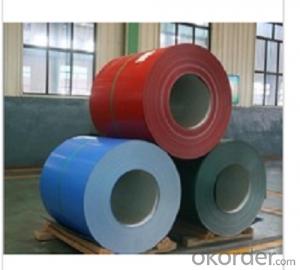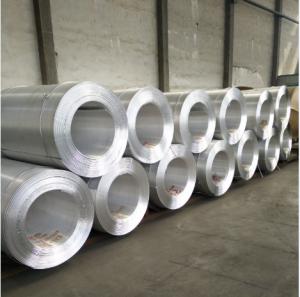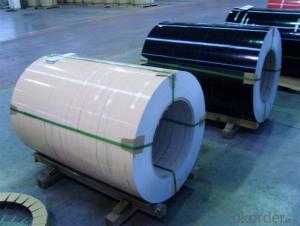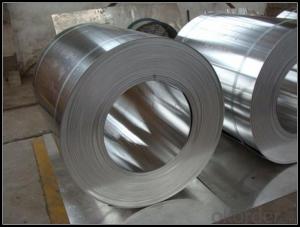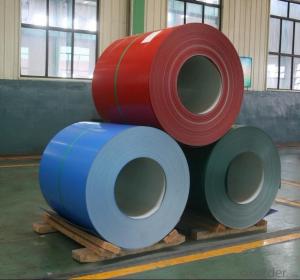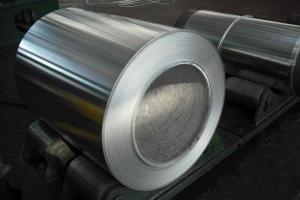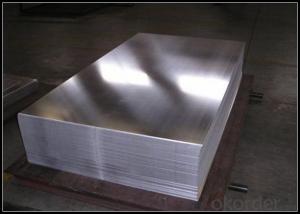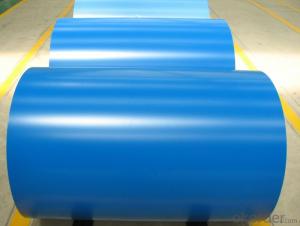5083 Aluminum Coil for Composite Panel 110 Coating Aluminium Coil
- Loading Port:
- Qingdao
- Payment Terms:
- TT OR LC
- Min Order Qty:
- 200 m.t.
- Supply Capability:
- 200 m.t./month
OKorder Service Pledge
OKorder Financial Service
You Might Also Like
Specification
The Specification of Coated Aluminium Foil
As shielding material, it is used for cables which must be free of electromagnetic or electrostatic interference, such as communication cables, data cables, coaxial cables, LAN cables, signal cables, computer PC board and other precision components.
Widely used in ventilation industry for flexible duct pipe production, printing, packaging, estate construction and so on.
PVDF Coated:
Coated Aluminum Coil features with super durability and weather resistance,and better properties to anti-acid,anti-alkali,keeping more than 15 years without fading in using as external wall cladding.
The Main Features of Aluminium Coated Coil:
1. Shred and pulverize the waste tire into the rubber power of 40-120mesh, and automatically separate the steel wire, fiber, Nylon compeltely through magnet separator and vibrating screen at normal temperature.
2. Compact structure, small space and easy maintennance
3.Lower energy consumption and good cost performance of investment
4.High-automatic and programmed control, higher coperatioin stability and more efficient running
5.No polluted water, no waste gas and no waste residuce during production process
The Imagin
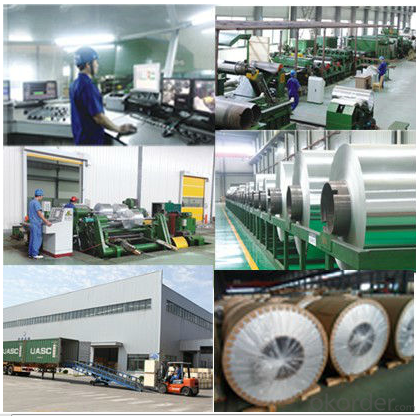
FAQ:
Q: Can you provide free samples?
A: Yes, free samples will be sent to you on freight at destination.
Q: Can I get your latest catalogue?
A: Yes, it will be sent to you in no time.
Q: What is the MOQ?
A: 5 tons
Q: What are your payment terms?
A: We accept L/C,T/T, West Union,etc.
- Q: Can aluminum coils be used for sound insulation purposes?
- No, aluminum coils are not typically used for sound insulation purposes.
- Q: How much is a ton gate of Jiangxi aluminium roll?
- Roll gate installation guide and measurement:The height h (the ground to the top of the doorway height);The table width (the distance between left to right, generally can be divided into single, double, three car garage);H (the height of lintel beam bottom to the height of the ceiling. If there is a beam or stringer in the room, it should be calculated as the distance between the top of the hole and the beam;
- Q: What is the corrosion resistance of aluminum coils in saltwater environments?
- Aluminum coils have excellent corrosion resistance in saltwater environments. This is due to the formation of a protective oxide layer on the surface of the aluminum, which acts as a barrier against corrosion. This oxide layer prevents the saltwater from coming into direct contact with the aluminum, effectively reducing the risk of corrosion. Additionally, aluminum is inherently resistant to saltwater corrosion because it is a relatively inert metal. As a result, aluminum coils are commonly used in various marine applications, such as boat hulls, offshore structures, and saltwater cooling systems. However, it is important to note that prolonged exposure to saltwater can still result in some level of corrosion over time. Regular maintenance and appropriate protective coatings can help enhance the longevity and performance of aluminum coils in saltwater environments.
- Q: What is the formula to calculate the wall thickness of aluminum coil?
- Aluminum coil thickness*aluminum coil width*aluminum coil curl*aluminum density (the density of aluminum alloy: 2.73, the density of pure aluminum: 2.71)
- Q: How are aluminum coils protected against mechanical damage?
- Aluminum coils are protected against mechanical damage through several methods. One of the primary ways is by applying a protective coating or finish to the surface of the coil. This coating acts as a barrier between the coil and any potential sources of mechanical damage, such as impact or abrasion. The coating can be a paint or a specialized coating designed specifically for aluminum, which provides enhanced durability and resistance to scratching or denting. In addition to the protective coating, aluminum coils may also be reinforced with a layer of laminate or film. This additional layer adds an extra level of protection against mechanical damage and can help prevent dents or scratches from occurring. The laminate or film can be applied during the manufacturing process or added as a separate step after the coil has been produced. Furthermore, aluminum coils may be wrapped or packaged in protective materials such as plastic or foam to minimize the risk of mechanical damage during transportation or storage. These protective wrappings help cushion the coil and provide a barrier against impacts or heavy objects that could potentially cause damage. Overall, the combination of protective coatings, laminates, and packaging materials helps to ensure that aluminum coils are adequately protected against mechanical damage. These measures help to maintain the integrity and quality of the coils, allowing them to perform effectively in various applications.
- Q: This question asks about the suitability of aluminum coils for outdoor applications based on their weight and strength.
- <p>Yes, aluminum coils are lightweight and strong, making them suitable for outdoor use. Aluminum is known for its high strength-to-weight ratio, which means it can withstand significant stress without adding much weight. It also has excellent corrosion resistance, which is crucial for outdoor applications where exposure to weather elements can lead to degradation. Additionally, aluminum's malleability allows it to be easily shaped and formed into various configurations for different outdoor structures and applications. Its light weight also reduces the load on structures, which can be an advantage in many construction scenarios.</p>
- Q: Why does fillet appear when rolling aluminum coil?
- How thick and wide is it when there is such problem? Which is the rolling pass? And what is the type of the rolling mill? The simple 4 rollers or CVC and HC rolling mill with roller control. Does the filler appear in rolling or out of roller? Different thickness will lead to different analysis.
- Q: Are aluminum coils suitable for food storage containers?
- Yes, aluminum coils are suitable for food storage containers. Aluminum is a non-toxic and non-reactive metal that is safe for storing food. It is lightweight, durable, and has excellent temperature retention properties, making it a popular choice for food storage containers.
- Q: What are the common fabrication techniques used for aluminum coils?
- The common fabrication techniques used for aluminum coils include rolling, annealing, slitting, and coating. Rolling is a primary fabrication technique that involves passing the aluminum through a series of rollers to reduce its thickness and achieve the desired shape. This process can be done using either hot rolling or cold rolling, depending on the specific requirements of the application. Hot rolling involves heating the aluminum to high temperatures, making it more malleable and easier to shape, while cold rolling is performed at room temperature. Annealing is another important technique used for aluminum coil fabrication. This process involves heating the aluminum to a specific temperature and then slowly cooling it down to enhance its mechanical properties. Annealing helps to relieve internal stresses, improve the aluminum's formability, and enhance its overall strength. Slitting is a technique used to cut wide aluminum coils into narrower strips. This process is typically performed using specialized machines that can slit the coils to the desired width. Slitting allows for more precise customization and can be used to produce coils of different widths to meet specific requirements. Coating is a common fabrication technique used to enhance the durability, corrosion resistance, and appearance of aluminum coils. Various coating methods, such as painting, anodizing, or powder coating, can be employed to provide a protective layer on the surface of the aluminum. This helps to prevent oxidation, improve weather resistance, and enhance aesthetic appeal. These fabrication techniques are commonly used in the aluminum industry to produce high-quality coils that can be further processed and utilized in various applications, including construction, automotive, aerospace, and electrical industries, among others.
- Q: How do aluminum coils compare to other metal coils?
- Compared to other metal coils, aluminum coils possess several advantages. To begin with, aluminum, being a lightweight material, facilitates easier handling and transportation. This particular characteristic also contributes to reduced shipping costs. Additionally, aluminum coils exhibit exceptional resistance to corrosion, making them suitable for various environments and applications. Moreover, their high malleability allows for easy bending and shaping without compromising their structural integrity. Furthermore, aluminum coils demonstrate excellent thermal conductivity, ensuring efficient heat transfer in applications such as HVAC systems. Lastly, aluminum is an environmentally friendly choice as it is highly sustainable and recyclable. In conclusion, aluminum coils offer a cost-effective, durable, and versatile alternative to other metal coils.
Send your message to us
5083 Aluminum Coil for Composite Panel 110 Coating Aluminium Coil
- Loading Port:
- Qingdao
- Payment Terms:
- TT OR LC
- Min Order Qty:
- 200 m.t.
- Supply Capability:
- 200 m.t./month
OKorder Service Pledge
OKorder Financial Service
Similar products
Hot products
Hot Searches
Related keywords
